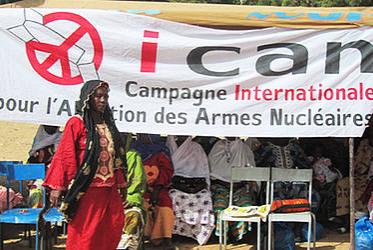Displaying 121 - 140 of 157
WCC general secretary welcomes Iran nuclear agreement
27 November 2013
WCC general secretary congratulates OPCW on Nobel Peace Prize
14 October 2013
Sign early and save lives!
04 June 2013
WCC expresses concern at rising tensions over Korean peninsula
15 February 2013
Nuclear tragedy finds a human face in Fukushima
19 December 2012
WCC hails actions to curb cluster bombs and nuclear weapons
29 November 2011
Can you imagine a world without nuclear weapons?
03 October 2011
66th anniversary of the bombings of Hiroshima and Nagasaki
05 August 2011






